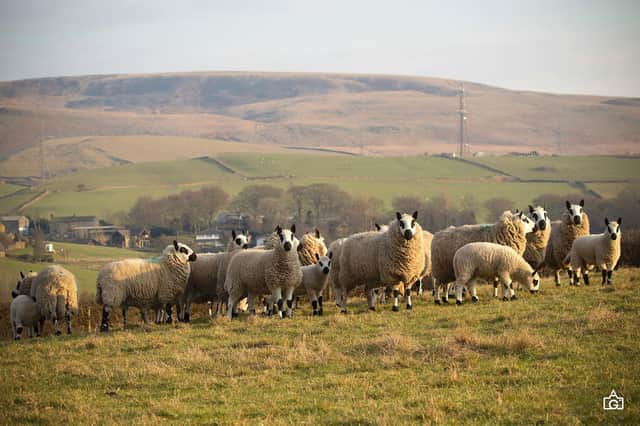Sheep farmers face "unnecessary risk in years to come" through New Zealand free trade deal says national body


The free trade deal, which is similar to the deal struck with Australia, will see tariffs phased out allowing New Zealand to export a limitless amount of produce to UK.
International Trade Secretary Anne-Marie Trevelyan said the agreement would add £800m to the British economy over the next decade.
Advertisement
Hide AdAdvertisement
Hide AdBut the National Sheep Association (NSA) said the deals with both Australia and New Zealand – the world’s largest sheepmeat exporting nations – does not go far enough to protect UK sheep farmers.
“Despite the current global supply and demand dynamics suggesting the UK won’t see a sudden increase of New Zealand lamb imported, this deal is opening ourselves up to a level of risk that could come and bite us in years to come,” said NSA chief executive Phil Stocker.
“The New Zealand free trade agreement gives the opportunity for tariff-free volumes to rise incrementally from 114,000 tonnes now, to 165,000 tonnes by year 15, and this combined with the Australian agreement of 125,000 tonnes is almost the total volume of lamb consumed here in Britain.
“At the end of this 15-year period, trade is expected to be liberalised completely and the only impact this can have is a move to more exports and imports which cannot be good for our carbon footprint or food security.”
Advertisement
Hide AdAdvertisement
Hide AdMr Stoker said that despite claims the UK and New Zealand seasons complement each other ensuring lamb will be available to consumers all year round, the agreement was largely a “one-way trade” with little benefit to be gained by British sheep farmers.
“The UK’s rich diversity of sheep farming systems, and climate, means we can and do, serve our domestic market very well already.
“It is worth considering that the last two years have seen reduced imports of New Zealand lamb due to Brexit and Covid, and our domestic supply chains have catered well for demand in the absence of this.”
The cumulative effect of free trade deals was highlighted by NFU president Minette Batters who echoed Mr Stocker in warning they could pose a “real risk” for UK farmers, particularly as current domestic agricultural policy is “woefully sparse” on detail on how they will be supported to become competitive food producers.
Advertisement
Hide AdAdvertisement
Hide Ad“As expected, this deal takes the same approach as the UK-Australia deal in eliminating tariffs for agricultural products, meaning that even for sensitive sectors like beef and lamb, dairy and horticulture, in time there will be no limit to the amount of goods New Zealand can export to the UK.”
She added the Government was asking the British farming sector to go “toe-to-toe” with some of the most export-orientated farmers in the world without the serious long-term and properly funded investment in the nation’s agriculture which would enable them to do so.
Mark Tufnell, president of the Country Land and Business Association (CLA) which represents 28,000 farmers, land managers and rural businesses across England and Wales, said the organisation struggled to see what opportunities the deal gave the UK’s farmers.
“Instinctively, we support free trade, but by definition there has to be something in it for both sides,” he said.